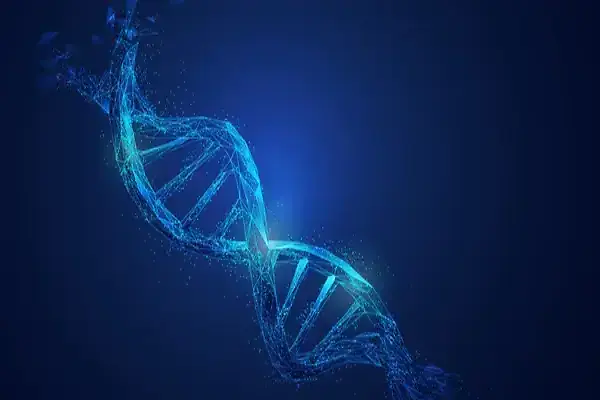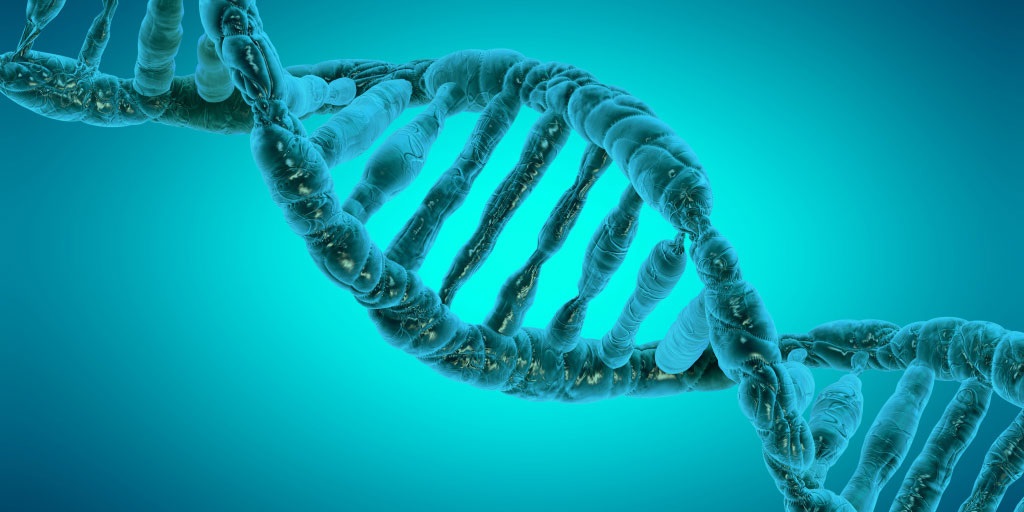Epigenetics, a groundbreaking field in modern biology, examines how gene activity can be altered without changing the DNA sequence itself. These changes, influenced by environmental, lifestyle, and psychological factors, challenge the traditional notion that our genetic destiny is fixed. By exploring the mechanisms behind epigenetic modifications and their reversibility, we delve into whether we can truly “rewrite” our genes to improve health and combat diseases.
Basics of Gene Expression and Epigenetics
Gene Expression: The Foundation
Gene expression determines which genes are active and which are silenced in a cell, shaping its function. This process involves:
- Transcription: DNA is converted into RNA.
- Translation: RNA directs protein production, crucial for cellular activities.
Epigenetic Mechanisms
- DNA Methylation: Methyl groups attach to DNA, silencing genes without altering the sequence.
- Histone Modification: Chemical changes to histone proteins control how tightly DNA is packaged, affecting gene accessibility.
- Non-Coding RNAs: These RNA molecules regulate gene expression by influencing transcription or translation processes.
Epigenome vs. Genome
While the genome provides the blueprint, the epigenome serves as the software, determining how genes are read and utilized. Unlike the fixed genome, the epigenome is dynamic and responsive to external stimuli.
Factors Influencing Epigenetic Changes
Environmental Factors
- Diet and Nutrition: Nutrients like folate and polyphenols influence DNA methylation.
- Toxins and Pollutants: Exposure to harmful chemicals can disrupt epigenetic patterns.
- Physical Activity: Exercise promotes beneficial epigenetic modifications.
Psychological and Social Factors
- Stress and Trauma: Prolonged stress alters epigenetic marks, influencing mental health.
- Social Environment: Socioeconomic status and social connections impact epigenetic regulation.
Developmental Influences
- Embryonic Development: Epigenetic changes during critical developmental windows shape lifelong health.
- Parental Influence: Parental lifestyle and experiences can affect the epigenome of offspring (transgenerational epigenetics).
Aging and Epigenetics
As we age, epigenetic changes accumulate, contributing to cellular aging and age-related diseases.
Can You “Rewrite” Your Genes?

Epigenetic Plasticity
Epigenetic modifications are reversible, providing opportunities to “rewrite” the gene expression landscape. Research demonstrates the potential for lifestyle and therapeutic interventions to reverse harmful epigenetic changes.
Role of Lifestyle Interventions
- Dietary Impact: Foods rich in antioxidants and nutrients (e.g., green tea, turmeric) can modulate the epigenome.
- Exercise: Regular physical activity enhances epigenetic regulation of genes linked to metabolism and inflammation.
- Stress Reduction: Meditation and mindfulness can mitigate stress-induced epigenetic changes.
Therapeutic Approaches
- Epigenetic Drugs: Medications like DNA methyltransferase inhibitors target specific epigenetic changes, offering treatments for cancers and other diseases.
- Gene Editing Technologies: Tools like CRISPR-Cas9 are being adapted for precise epigenetic modifications.
Limitations and Challenges
- Specificity: Targeting precise epigenetic changes is complex.
- Ethical Concerns: Manipulating the epigenome raises questions about long-term effects and societal implications.
The Role of Epigenetics in Health and Disease
Epigenetics and Chronic Diseases
- Cancer: Abnormal DNA methylation patterns can activate oncogenes or silence tumor suppressor genes.
- Diabetes: Epigenetic changes influence insulin resistance and metabolic pathways.
- Cardiovascular Diseases: Epigenetic modifications regulate genes related to heart health.
Epigenetics and Mental Health
- Early-life stress can leave lasting epigenetic marks, increasing susceptibility to depression and PTSD.
- Epigenetic therapies show promise in addressing psychiatric conditions by reprogramming gene expression.
Epigenetics and Personalized Medicine
- Epigenetic markers are being used to predict disease risk and tailor treatments.
- Advances in epigenomics offer the potential for individualized therapeutic approaches.
Transgenerational Epigenetics
What Is Transgenerational Epigenetics?
This phenomenon occurs when epigenetic changes are inherited by subsequent generations, influencing their health and traits.
Examples from Research
- Famine Studies: Descendants of individuals exposed to famine show altered metabolic health.
- Trauma Research: Offspring of trauma survivors exhibit epigenetic changes linked to stress response genes.
Implications for Evolution
Epigenetic inheritance complements genetic evolution by enabling rapid adaptation to environmental changes.
Ethical and Societal Considerations
Ethical Questions in Epigenetic Modification
- Should epigenetic modifications be used for enhancement or only for treatment?
- How do we balance individual benefits against potential societal risks?
Societal Impacts
- Health Disparities: Epigenetic research can address inequalities but may also widen gaps if access to interventions is unequal.
- Public Awareness: Educating people about epigenetics is crucial to mitigate misconceptions.
Balancing Innovation and Caution
Regulatory frameworks must ensure that epigenetic therapies are safe, ethical, and accessible.
The Future of Epigenetics
Emerging Technologies
- Epigenome Sequencing: Advanced tools for mapping epigenetic changes with precision.
- Precision Epigenetic Editing: Developing techniques to target specific regions of the epigenome.
Potential for Disease Prevention and Treatment
- Early detection of diseases through epigenetic biomarkers.
- Novel therapies targeting epigenetic pathways for a wide range of conditions.
Broader Applications
- Agriculture: Enhancing crop resilience and yield through epigenetic modifications.
- Environmental Science: Monitoring ecosystem health by studying epigenetic responses in organisms.
Practical Steps to Optimize Your Epigenome
Healthy Lifestyle Choices
- Focus on a nutrient-rich diet with minimal processed foods.
- Incorporate regular exercise into daily routines.
- Practice stress-reduction techniques like yoga and mindfulness.
Avoiding Harmful Exposures
- Reduce exposure to pollutants and tobacco smoke.
- Minimize consumption of ultra-processed foods.
Supporting Epigenetic Research
- Participate in studies to advance understanding of epigenetic changes.
- Stay informed about new findings and therapies.
Conclusion
Epigenetics reveals the profound impact of lifestyle, environment, and behavior on our genetic expression. While we cannot alter the DNA blueprint, we can influence how our genes are read and expressed. By embracing healthy choices and supporting advancements in epigenetic research, we have the potential to rewrite the narrative of our genetic destiny and foster a healthier future.


